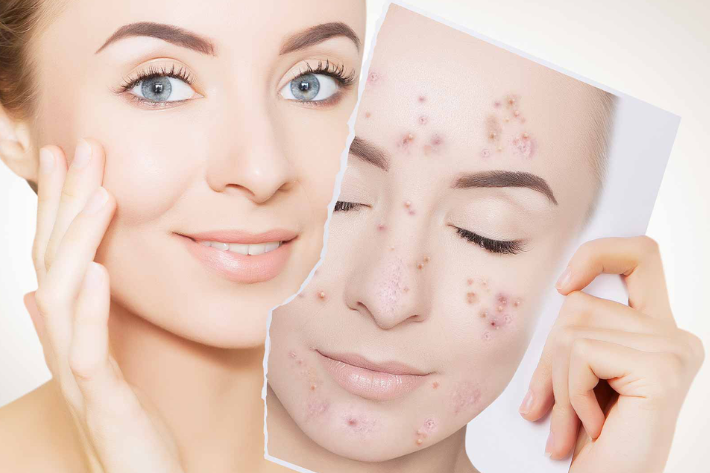Acne is a common skin condition that can leave behind scars if not treated effectively. Fortunately, the right acne creams can do more than just treat blemishes—they can also help prevent scars and promote skin healing. Here's a detailed look at how acne creams work to protect and rejuvenate your skin.
The Role of Acne Creams in Skin Healing
Acne creams are formulated with active ingredients that target different aspects of acne and skin repair. Their primary roles include:
1. Reducing Inflammation
- Acne creams with ingredients like benzoyl peroxide, salicylic acid, and niacinamide help calm redness and swelling, minimizing the chances of scar formation.

2. Promoting Skin Renewal
- Retinoids and alpha-hydroxy acids (AHAs) stimulate cell turnover, helping to fade post-acne marks and prevent scar tissue buildup.
3. Hydrating and Soothing the Skin
- Moisturizing ingredients like hyaluronic acid and ceramides maintain the skin barrier, preventing dryness and irritation, which can exacerbate scarring.
4. Killing Acne-Causing Bacteria
- Antibacterial agents like benzoyl peroxide reduce bacteria on the skin, preventing further breakouts that can lead to scars.
5. Lightening Dark Spots
- Brightening agents such as vitamin C and licorice extract target hyperpigmentation caused by acne, reducing the appearance of dark spots.
Key Ingredients in Acne Creams and Their Benefits
1. Retinoids
- Promote cell turnover and collagen production.
- Help fade existing scars and prevent new ones.
2. Benzoyl Peroxide
- Kills acne-causing bacteria and reduces inflammation.
- Prevents future breakouts, reducing the risk of scarring.
3. Salicylic Acid
- Exfoliates the skin and unclogs pores.
- Prevents blackheads and whiteheads that can lead to scars.
4. Niacinamide
- Reduces inflammation and redness.
- Improves skin texture and minimizes discoloration.
5. AHAs and BHAs
- Remove dead skin cells to reveal smoother skin.
- Help fade post-acne marks and scars.
6. Centella Asiatica
- Promotes wound healing and soothes irritation.
- Ideal for sensitive or acne-prone skin.

How to Use Acne Creams Effectively
-
Cleanse Your Skin:
- Start with a gentle cleanser to remove dirt and oil.
-
Apply the Acne Cream:
- Use a pea-sized amount on the affected areas. Avoid overapplication to prevent irritation.
-
Moisturize:
- Follow with a non-comedogenic cream to keep your skin hydrated.
-
Use Sunscreen:
- Protect your skin from UV damage, which can worsen scars, by applying sunscreen daily.
-
Be Consistent:
- Regular use is key to seeing results. Patience is essential, as most treatments take weeks to show improvement.
Tips to Prevent Acne Scars
- Avoid Picking or Popping Pimples: This can lead to inflammation and permanent scars.
- Treat Acne Early: Start treatment at the first sign of acne to prevent severe breakouts.
- Use Non-Comedogenic Products: These won’t clog pores and exacerbate acne.
- Maintain a Healthy Diet: Reduce sugar and processed foods that can trigger acne.

When to Consult a Dermatologist
If over-the-counter acne creams are not effective or if you have deep scars, consult a dermatologist. They may recommend advanced treatments like:
- Prescription-strength retinoids or topical antibiotics.
- Chemical peels or microdermabrasion for scar removal.
- Laser therapy or microneedling for severe scars.
Conclusion
Acne creams are a powerful tool for not only treating acne but also preventing scars and promoting skin healing. By understanding how these creams work and incorporating them into your skincare routine, you can achieve clearer, healthier skin. For best results, pair these products with good skincare habits and consult a dermatologist for personalized advice.


